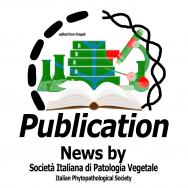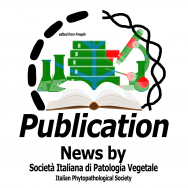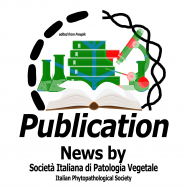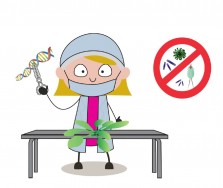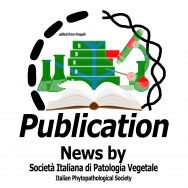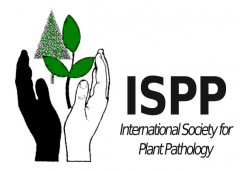Plant pathogens have optimized their own effector sets to adapt to their hosts. However, certain effectors, regarded as core effectors, are conserved among various pathogens, and may therefore play an important and common role in pathogen virulence. We report here that the widely distributed fungal...
The basidiomycete Ustilago maydis causes smut disease in maize (Zea mays L.) by infecting all plant aerial tissues. The infection causes leaf chlorosis and stimulates the plant to produce nutrient-rich niches, i.e., tumors, where the fungus can proliferate and complete its life cycle. Previous...
Certain soil microorganisms can perform agriculturally valuable functions such as ethylene reduction, plant pathogen suppression, and soil nutrient solubilization. Interest and investment in developing soil microbial inoculants to enhance these functions has recently surged, but...
Cross-kingdom small RNA (sRNA) silencing has recently emerged as a mechanism facilitating fungal colonization and disease development. Here we characterized RNAi pathways in Zymoseptoria tritici, a major fungal pathogen of wheat, and assessed their contribution to pathogenesis. Computational...
Disease resistance is without argument the best technological approach to control diseases in plants since no management input is required by the grower once the resistant variety has been planted. The biggest problems in using disease resistance lie in the facts that effective sources of resistance...
Il 5 dicembre 2018, presso l'Aula Magna del Dipartimento di Scienze Agrarie Alimentari e Agro-ambientali (Università di Pisa) si terrà una GIORNATA DI STUDIO sulle "Potenzialità della tecnologia genome editing per la difesa delle piante" organizzata dall'Accademia dei Georgofili, in...
Venerdì 23 novembre 2018, presso l’Aula Magna della Cavallerizza Reale dell’Università degli Studi di Torino, si è tenuta la seconda edizione torinese dei “FISV DAYS: Viaggia con noi nel Mondo delle Scienze della Vita!”. Oltre 400 studenti e 30 insegnanti delle Scuole Superiori della...
Citrus is a globally important, perennial fruit crop whose rhizosphere microbiome is thought to play an important role in promoting citrus growth and health. Here, we report a comprehensive analysis of the structural and functional composition of the citrus rhizosphere microbiome. We use both...

